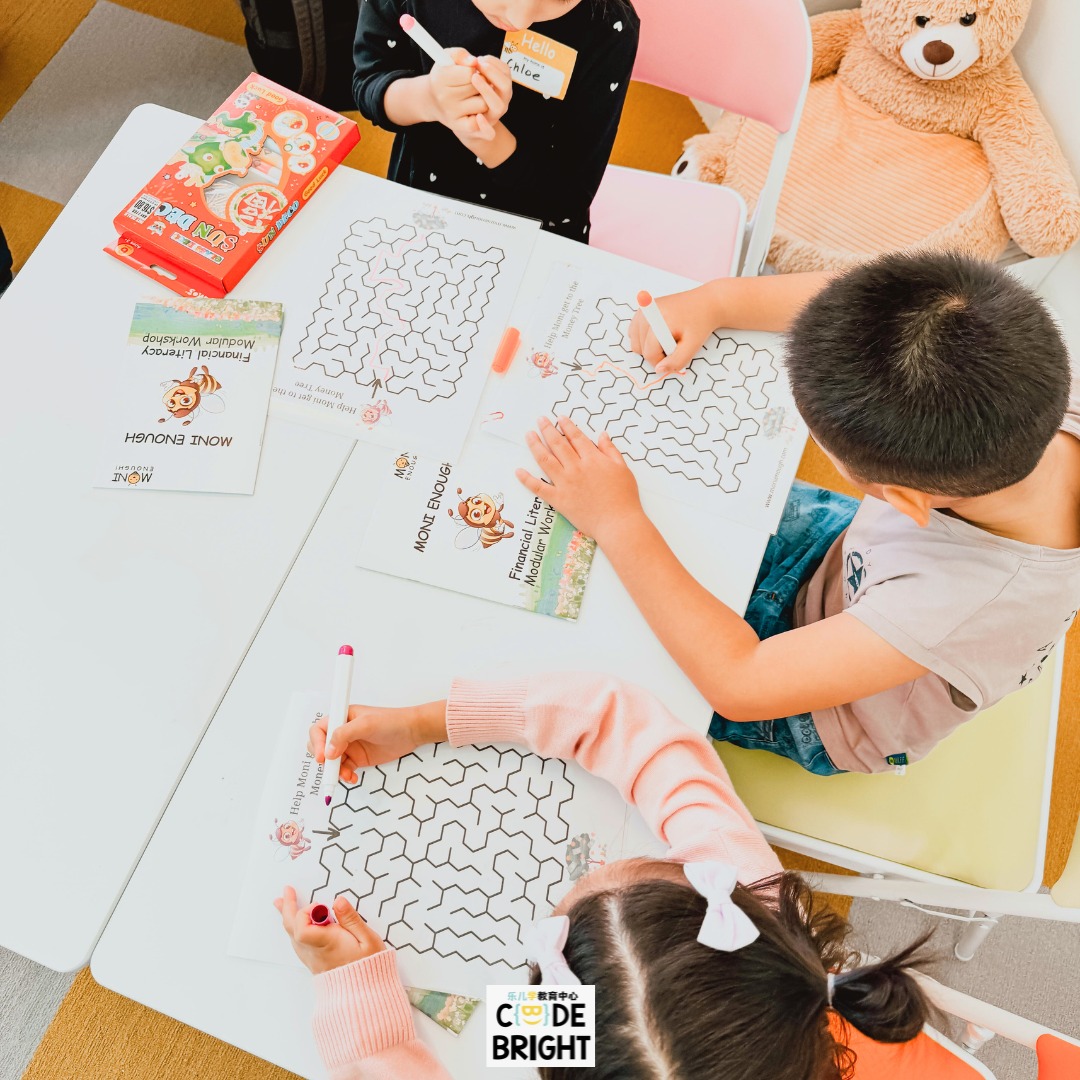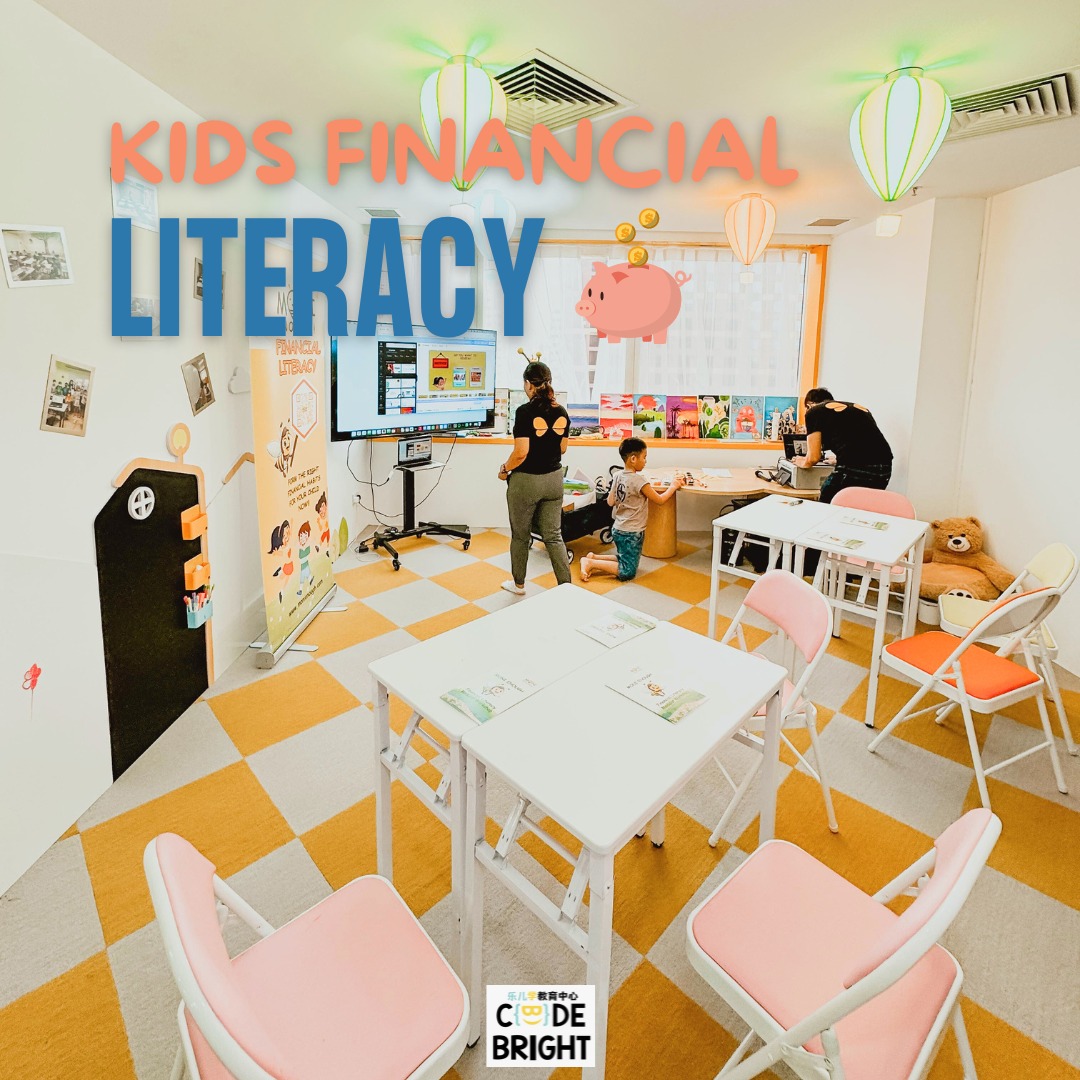
We are so proud of them for participating and learning valuable skills for their future.
Thank you to all the parents and talkers who made this workshop possible!
Financial literacy for kids is crucial for their overall development and future success. Here are several benefits of teaching financial literacy to children:
-
Money Management Skills: Financial literacy equips children with essential money management skills, such as budgeting, saving, and spending wisely. By learning these skills early in life, children develop responsible financial habits that can last a lifetime.
-
Decision-Making Abilities: Understanding the concepts of earning, saving, and spending money helps children develop critical thinking and decision-making abilities. They learn to evaluate options, set priorities, and make informed financial choices based on their goals and values.
-
Financial Independence: Financial literacy empowers children to become financially independent and self-sufficient as they grow older. By teaching them the value of earning and managing money responsibly, parents and educators help children build the confidence and skills they need to navigate the financial challenges of adulthood.
-
Long-Term Planning: Financial literacy encourages children to think about their future goals and aspirations and develop long-term financial plans to achieve them. Whether it’s saving for college, buying a car, or starting a business, children who are financially literate are better equipped to set goals and work towards achieving them.
-
Financial Security: By instilling financial literacy skills in children, parents help them build a strong foundation for financial security and stability later in life. Children who understand the importance of saving and investing are more likely to build wealth over time and weather financial setbacks more effectively.
-
Avoidance of Debt and Financial Pitfalls: Financially literate children are less likely to fall into debt or financial pitfalls as they grow older. They understand the consequences of borrowing money, using credit cards irresponsibly, and living beyond their means, leading to healthier financial behaviors in adulthood.
-
Entrepreneurial Mindset: Financial literacy encourages an entrepreneurial mindset in children, fostering creativity, innovation, and a willingness to take calculated risks. Children who understand the basics of business and finance are more likely to explore entrepreneurship as a career option and pursue opportunities for financial success.
-
Empathy and Social Responsibility: Teaching children about financial literacy also involves imparting values such as empathy, generosity, and social responsibility. Children learn the importance of giving back to their communities, supporting charitable causes, and making ethical financial decisions that benefit society as a whole.
-
Improved Academic Performance: Studies have shown that children who receive financial education tend to perform better academically. Financial literacy enhances children’s math skills, problem-solving abilities, and overall cognitive development, leading to improved academic performance across various subjects.
-
Reduced Stress and Anxiety: Financially literate children are better equipped to manage financial stress and anxiety, both during childhood and into adulthood. By teaching children how to plan, save, and manage money effectively, parents and educators help them develop resilience and coping mechanisms for dealing with financial challenges.
Overall, financial literacy for kids is essential for their personal development, academic success, and long-term financial well-being. By instilling good financial habits and values early in life, parents and educators empower children to make smart financial decisions, achieve their goals, and lead fulfilling lives.









